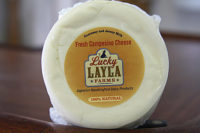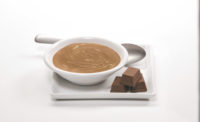When speaking to consumers, say natural, local and healthy

Health and wellness are important factors in the buying habits of an increasing number of consumers, with sales of natural, local, organic, gluten-free, and non-GMO products spiking over the past year, according to the International Dairy-Deli-Bakery Association. The Madison, Wis.-based IDDBA is a nonprofit membership organization serving the dairy, deli, bakery, cheese, and supermarket foodservice industries.
The association documents dozens of other food industry and consumer trends in supermarket fresh departments in the 29th edition of its “What’s in Store” publication. Highlights of the health and wellness movement, according to IDDBA, include:
- The dieting trend is on the decline.
- Retailers and wholesalers report sales increases in health and wellness products.
- The value of the gluten-free market is as high as $10.5 billion.
- Annual sales of local food are at least $9 billion.
- The value of the gluten-free market is as $10.5 billion.
- Digestive health is a health concern among Millennials.
- Sales of organic food and non-food items grew 11.5%.
Instead of dieting, Americans are seeking a more balanced approach to weight loss and management. Also, 75% of retailers and wholesalers reported an increase in sales of health and wellness products, with more than 40% posting sales growth of 10% or more, according to Supermarket News.
Sales of local food are worth at least $9 billion annually, with 40% of consumers stating they purchase food weekly and 28% buying local at least once a month, according to A.T. Kearney.
The value of the gluten-free market is substantial, with sales estimates as high as $10.5 billion in 2013 and a projected worth of $15.6 billion in 2016, according to Mintel.
Gluten-free buying habits translate into higher sales ($100 vs. $33 per overall average basket), according to Catalina Marketing.
IDDBA’s research shows that digestive health is a distinctive health concern among Millennials, who seek out more fermented, cultured, and probiotic products.
Almost 13% of all new food and beverage launches in 2013 include “free-from” claims.
Sales of organic food and non-food items in the United States exceeded $35 billion in 2013, an 11.5% year-over-year increase and the fastest growth rate in five years, stated the Organic Trade Association.
IDDBA’s original research, “Engaging the Evolving Shopper: Serving the New American Appetite,” confirms these health and wellness trends. IDDBA found that consumers view foods found in the fresh perimeter categories as antidotes to unhealthy, processed foods.
For example, the dairy department represents a real-food source of protein in the form of yogurt, milk, cheese, eggs, and tofu, while the bakery department has an increasing opportunity to deliver on key wellness priorities with more focus on a wider variety of fresh, whole grain and gluten-free products.
“In-store bakeries, delis, and dairies can engage consumers by presenting them with a variety of fresh, real, and minimally-processed foods,” said Eric Richard, education coordinator, IDDBA. “By doing so, they become part of shoppers’ conversations about what is healthy and delicious to eat, and where they can easily find these foods to purchase.”
“What’s in Store 2015” is a 224-page trends report that details consumer and industry trends affecting the in-store dairy case, cheese case, bakery, deli, and foodservice departments. “Engaging the Evolving Shopper: Serving the New American Appetite” provides insights and implications around how Millennials are shaping food trends; how new demands of modern life are changing eating culture; and how health and wellness trends have redefined how shoppers see the role of food in their lives. For further details or to order either publication, go to iddba.org.
Looking for a reprint of this article?
From high-res PDFs to custom plaques, order your copy today!







